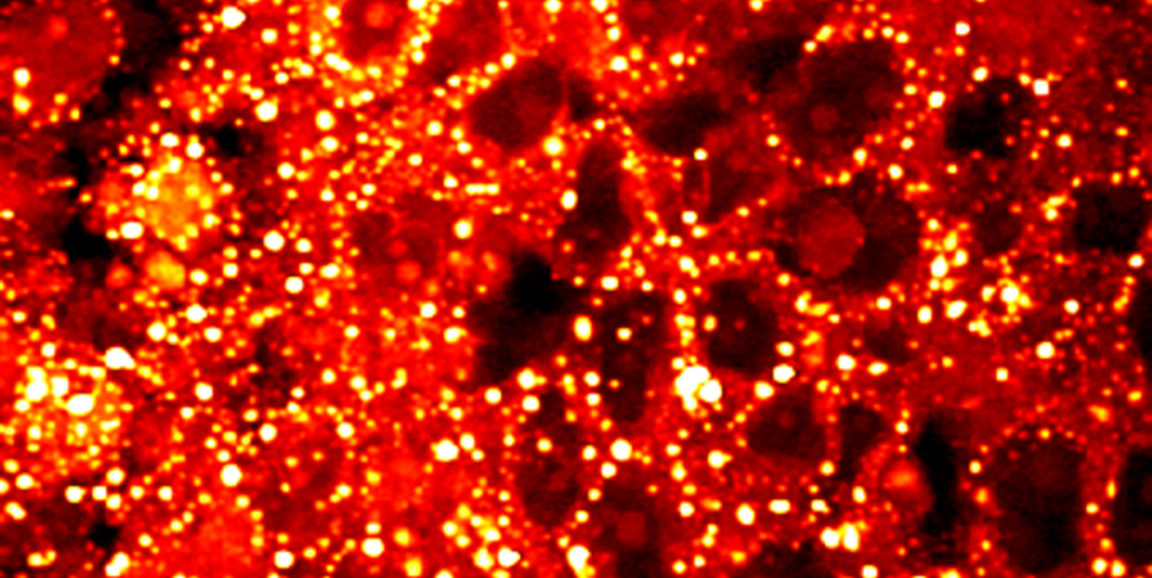For many of us, the word 'fat' brings up visions of greasy hamburgers or potbellies and cellulite. But on a molecular level fats, or lipids, are necessary to carry out a host of critical cellular functions, from cell division to sending signals within and among groups of cells. Cancer cells are no different. If anything, they may need a more ready supply of lipids to fuel their frenetic growth.
Now, oncologist Dean Felsher, MD, PhD, and chemist Richard Zare, PhD, together with postdoctoral scholars Arvin Gouw, PhD and Katherine Margulis, PhD, have linked the ability of a cancer-associated gene called Myc to trigger an increase in lipogenesis, or fat production, to its promotion of tumor development. Blocking this activity, they found, caused human tumors in mice to shrink. They published their results in Cell Metabolism.
As Felsher explained in an email:
Cancer cells divide rapidly. They need to be able to make the parts of new cells very quickly. Lipids are needed to make the outer cellar membrane, the nuclear membrane, and all of the cellular organelles. Lipids are also an essential source of energy production, particularly in fast-growing cells. They are turned into various messengers and hormones that are important to communicate amongst cells to increase growth.
Felsher and Zare collaborated with oncologist Chi Dang, MD, PhD, at the Wistar and Ludwig Institutes and Almut Schultz, PhD, at the University of Wuerzburg to conduct the studies. Together they used a neat technique I've written about before called DESI-MSI to show that cancer cells exhibit changes in their lipid profiles when the Myc oncogene is activated. In particular, the cancerous cells had more of a class of lipids called glycerophosphoglycerols than normal cells did.
They then went on to show that blocking the production of these fatty acids not only inhibited the growth of Myc-dependent human cancer cells in the laboratory, but that it also caused human tumors implanted into mice to shrink in size. The finding has some exciting implications for future therapies.
As Felsher explained:
Basically, we found that in cancer cells, the Myc oncogene regulates all of fatty acid metabolism and that this regulation results in a massive vulnerability of cancer cells to the inhibition of fatty acid synthesis.
Importantly, we show that this is true for many types of human cancers. So now we've identified the mechanism by which Myc promotes the growth of cancer cells and identified how to stop it. This will allow us to screen for new drugs that can block lipogenesis and, hopefully, cancer growth.
Image of lipid droplets (bright spots) in prostate cancer by Ji-Xin Cheng, Purdue University Center for Cancer Research, National Cancer Institute, National Institutes of Health




